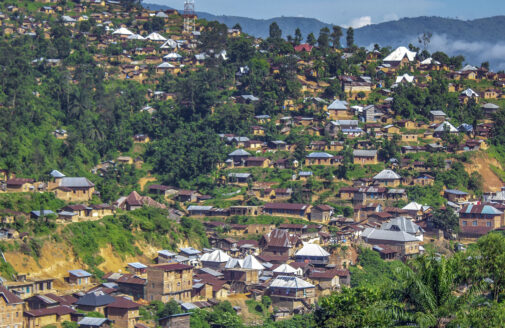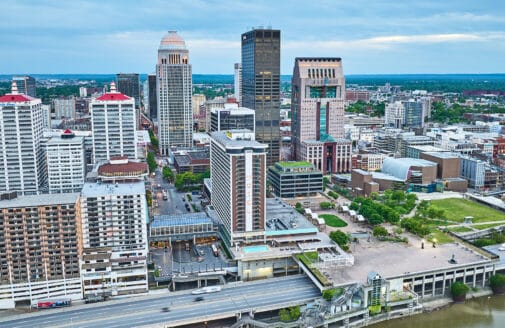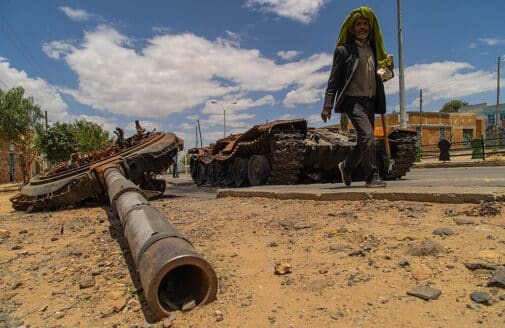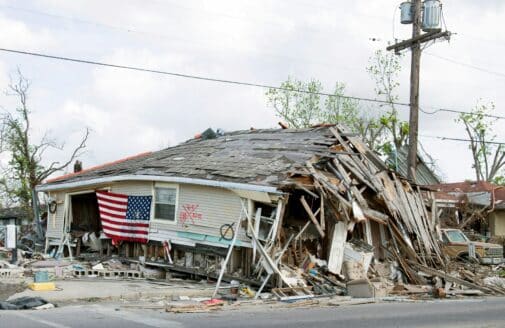New climate risk and resilience report released in partnership with the DRC
Report details a strategic assessment of climate risk facing the region, and provides a roadmap for improving climate resilience, particularly through carbon financing
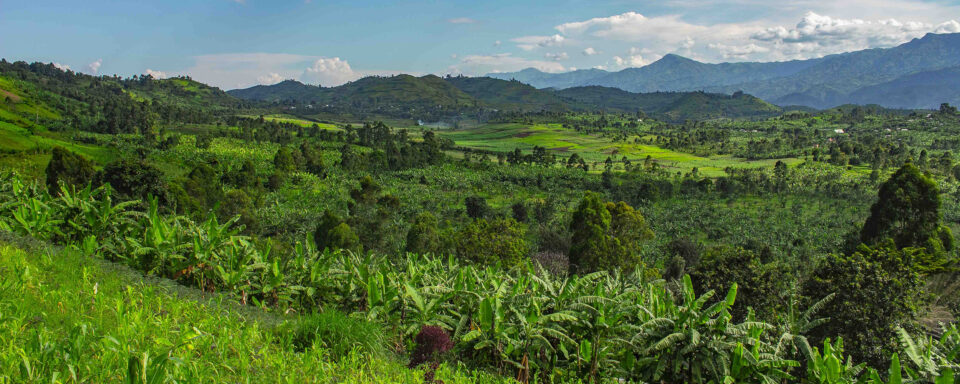
At COP28, Woodwell Climate Research Center and the Ministry of the Environment and Sustainable Development (MEDD) of the Democratic Republic of Congo (DRC) have jointly released a new report, From Risk to Resilience: A strategic assessment of challenges and solutions to scaling climate mitigation and adaptation in the Democratic Republic of Congo.
“This is a very important tool,” said Benjamin Toirambe, DRC Secretary-General of the Environment. “There’s a real need for this, you can’t simply be feeling your way in the dark. If today the Minister of Agriculture has a risk analysis, he can guide his decision making based on what is happening in the field.”
“It really points towards the need to make much more critical investments in basic science to support this type of model, and support more efficient policy implementation,” said Dr. Glenn Bush, Associate Scientist at Woodwell Climate Research Center.
The report is based on a collaboration that began last year between Woodwell Climate and MEDD to generate a localized, customized, cost-free climate risk assessment. It examines a range of climate change threats to forests and agriculture in the region – including drought, heat stress, agricultural yields, extreme precipitation, flooding, and wildfire – and finds that these threats necessitate swift climate adaptation action, particularly by enhancing carbon credit integrity and scaling finance mechanisms in order to fund necessary adaptation efforts and support forest preservation as a critical natural climate solution.
“I am very pleased that the report has been adopted by both parties,” said Joseph Zambo, who facilitated the collaboration as Woodwell Climate’s focal point in the DRC. “This report comes at a good time for the DRC, as the country is engaged in several processes to combat climate change. This report will serve as a sustainable and real support to prevent climate risks and find ways to find solutions at scale.”
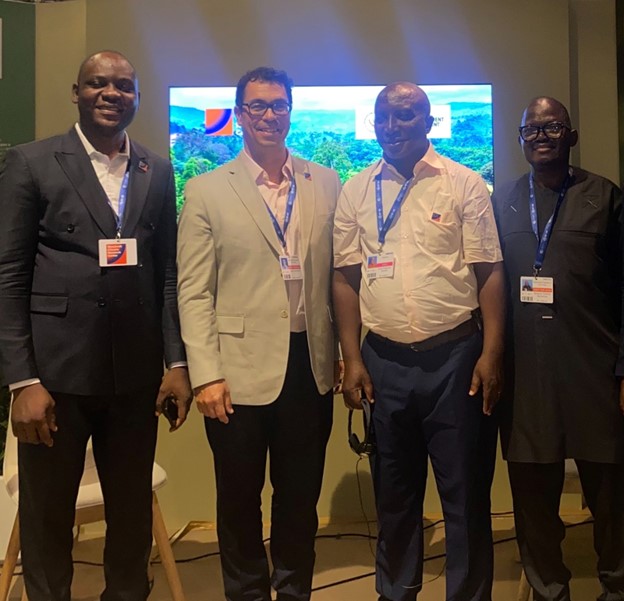
(left to right) Joseph Zambo, Glenn Bush, Professor Onesphore Mutshail Kuval, Secretary-General Benjamin Toirambe at the report release event at COP28.
photo by Heather Goldstone
“The DRC’s landscapes are one of the greatest insurances against future climate risks—a natural climate solution to prevent further warming and avoid the worst harm from climate change. Carbon markets represent one of the most important and effective tools we have to protect them,” said Bush.
To support disaster risk reduction and climate change adaptation planning, the report offers policy recommendations, including: creating more stable and reliable observational networks and data records; scaling up agricultural research and extension services; improving field inventory and remote sensing monitoring systems; and building community awareness of climate impacts. Additionally, specific policy recommendations related to financing include:
- Develop a national “umbrella framework” of measurable and enforceable criteria for carbon performance, to operationalize a regional standard for carbon market integrity and quality;
- Identify in detail the technological needs and operational resources to enable the transparent performance assessment of regionally generated carbon credits for the global market, including organizational development needs, gaps, roles, and interagency responsibilities;
- Enhance the digital framework for data access and transparency of nature-based climate solutions carbon credits, building around existing emerging national infrastructure.
“What’s particularly interesting is the comparison we have done with the initial data provided by NDCs and compared to forecasting and models used by Woodwell,” said Professor Onesphore Mutshail Kuval of the University of Kinshasa. “This made it possible for us in DRC to propose certain types of adaptation in the context of the carbon market, based on risk assessments provided by this forecasting model. We have a whole series of proposed adaptation measures, and these were devised in conjunction with the models provided to us.”
The report was officially released during the 2023 United Nations climate change conference, or Conference of the Parties, COP28, at a panel event, The intersection between adaptation and mitigation, and implications for developing the New Climate Economy. The event was co-hosted by Woodwell Climate and the DRC, and focused on discussing the report’s findings in the context of emerging priority policy and management pathways to a green economy.
The full report can be read here.




